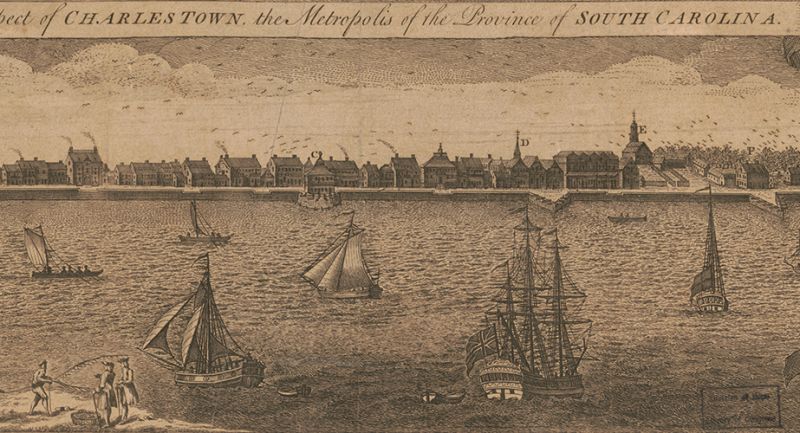- 1739: Eliza Lucas Pinckney Experiments With Indigo - The 17-year-old daughter of Lt. Col. George Lucas, Eliza (1722-1793) manages her father’s Lowcountry plantations while he is called back to Antigua. For two years, she experiments with processing indigo for international trade, helping make it one of the Lowcountry’s most valuable cash crops of the century, second only to rice in export value. After the Revolutionary War, the embittered British begin obtaining their indigo from India, effectively ending South Carolina’s production of the crop. Learn more about indigo.
- 1739: Lowcountry Slaves Revolt - On September 9, about 20 enslaved men from Stono River area seize weapons from a local store and begin killing white overseers and marauding plantations. Twenty-one whites and 44 blacks are slain before the insurrection is quelled. After the rebellion, the activities of the enslaved are curtailed, and limitations are set on the number of slaves that can be imported to Charleston as a means of stemming the growth of the black population.
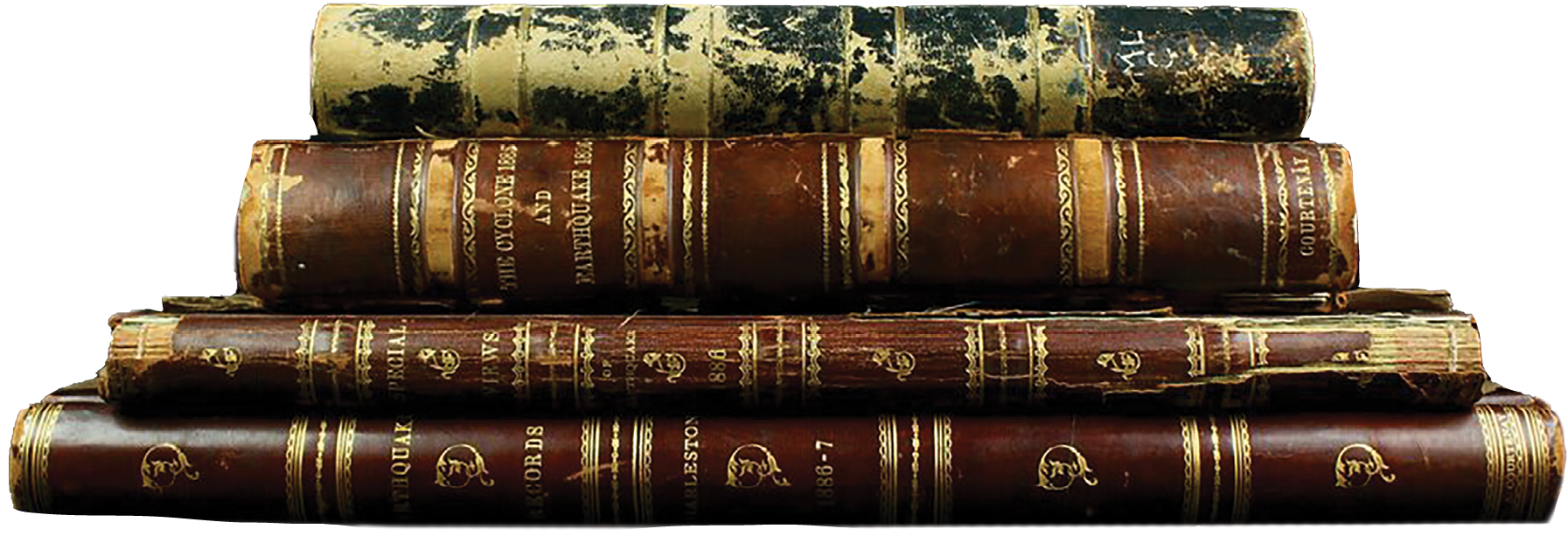
(Courtesy of Charleston Library Society)
- 1748: Charleston Library Society Founded - The organization, the third oldest library in the United States, is established by 19 young Charleston men with the purpose of collecting, preserving, and disseminating publications, books, manuscripts, and visual materials to members. It will be 182 years before the city has a public lending library.
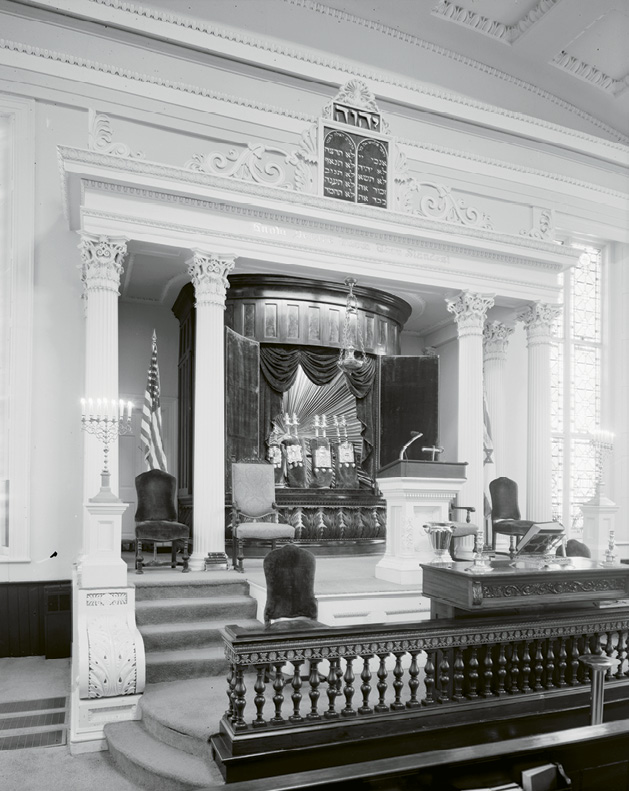
(Courtesy of Library of Congress)
- 1749: Kahal Kadosh Beth Elohim Organizes - A group of Charleston Jews meets on June 3 with the purpose of forming a congregation, one of the first five in the colonies. During the early 1800s, the city’s Jewish community outranks any other in the country in wealth and size. In 1824, KKBE becomes the first Reform Jewish congregation in the country.
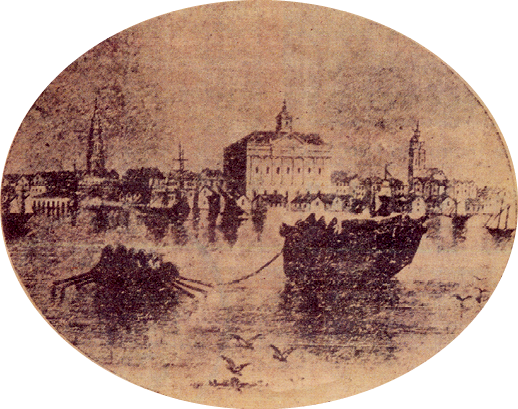
(Courtesy of SC Historical Society)
- 1773: Charleston’s Own Tea Party - Thirteen days before the Boston Tea Party, a British ship carrying tea arrives in Charleston Harbor, expecting local merchants to pay a newly levied tax on the leaves. Patriots spend weeks debating whether to attack, boycott, or continue with business as usual, while in Boston, the crisis comes to a head. To avoid mob action, the customs collector secrets the cargo, with no taxes paid, to the basement of the Exchange. Of the four ports to which the East India Company shipped tea, Charleston is the only one in which the cargo makes landfall.
- 1773: Public Museum Formed - The Charleston Library Society donates its collection of natural history artifacts to create The Charleston Museum. Today the institution, widely considered the oldest museum in the country, is filled with historical, cultural, botanical, and zoological artifacts, including those first acquired in 1773.
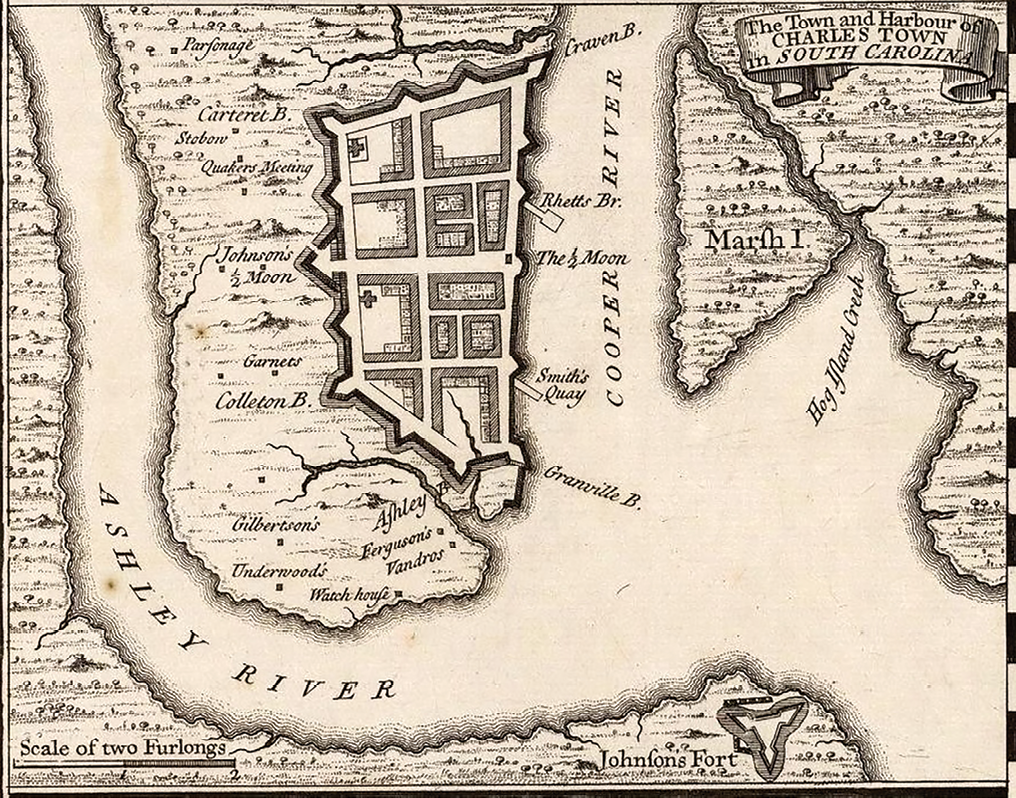
Town and Harbour of Charles Town in South Carolina, a 1733 map by Herman Moll (courtesy of Wikipedia)
- 1773: Chamber of Commerce Born - In response to British importation, the organization is announced in December when the Charleston Gazette reports “a Meeting of the Gentlemen in Trade of this Town, at Mrs. Swallow’s [tavern] when it was proposed that a Chamber of Commerce be formed.” Reorganized after the Revolutionary War, hence the date of 1784 on the organization’s seal, it’s the longest continuously operated municipal chamber in America.
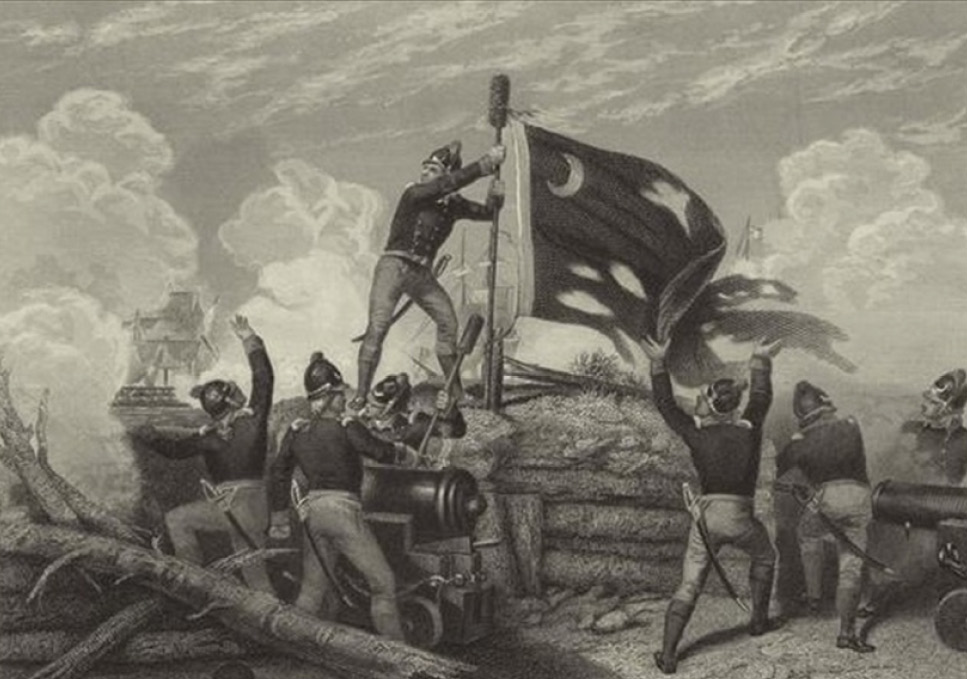
(Courtesy of WIkipedia)
- 1776: Battle of Fort Sullivan - On June 28, a British fleet launches a full-scale bombardment against the patriots under William Moultrie at a hastily erected fort of sand and palmetto logs on Sullivan’s Island. The dense, spongy trees repel enemy cannonballs. Despite being vastly outmanned and outgunned, the colonists pour heavy fire onto the British, eventually sinking several ships. After 10 hours, the British retreat, giving the patriots a stunning victory in this first major Southern battle of the Revolutionary War.
- 1779: Charleston Falls to British - After a long siege, Gen. Benjamin Lincoln surrenders the city to Sir Henry Clinton on May 12. Charleston remains occupied until December 14, 1782.
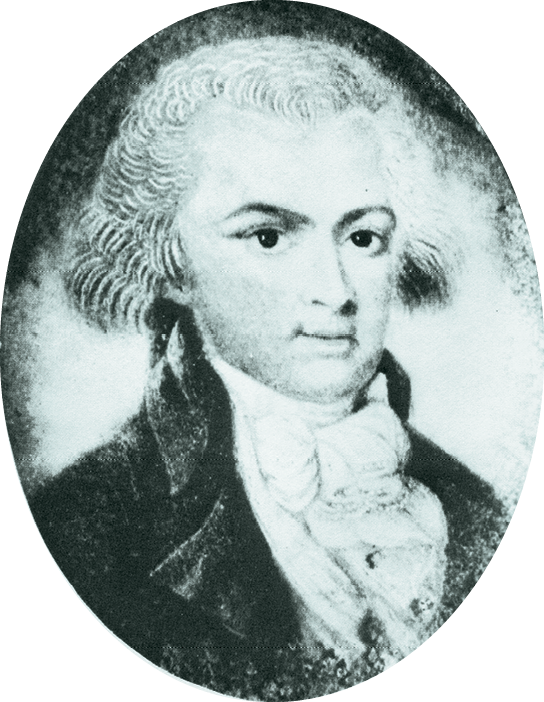
(Courtesy of Betsy Foster)
- 1781: British Execute Isaac Hayne - On August 4, a loyal colonel of the Continental forces is hanged for treason without a trial, outraging South Carolinians, who flock to support the patriot cause in the South.

(Courtesy of Library of Congress)
- 1785: College of Charleston Chartered - Although founded in 1770, the college is chartered on March 19 “to encourage and institute youth in the several branches of liberal education.” Classes don’t begin until 1790. When the city assumes responsibility in 1837, CofC becomes the first municipal college in the US. The school admits its first female students in 1917 and its first African American students in 1967. Three years later, the administration is transferred to the state.
